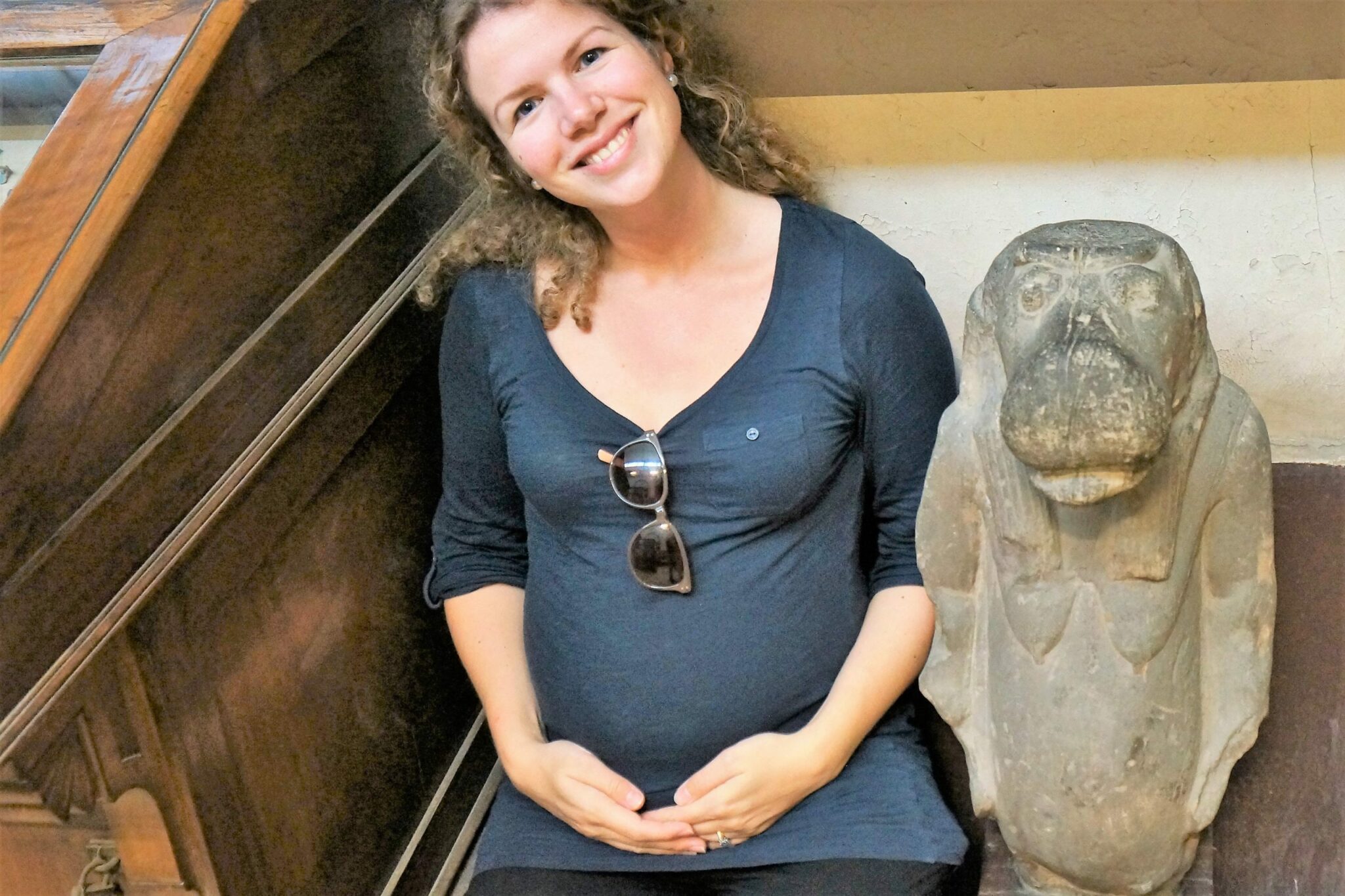Nabta’s Story: Part 2 – Falling Pregnant

I first suspected I was pregnant when I started waking up at 5:30 AM every morning to go to the toilet. I have never been a heavy sleeper, but this was definitely different. Then I became famished by around 11:30 AM, not long after eating a substantial breakfast and way before my usual lunchtime.
Next, I deviated from my “water is best” rule and began drinking fresh orange juice by the gallon; a sign of pregnancy I only recognized in hindsight when I learned that orange juice is a natural source of folate (or “Folic Acid”), which is taken as a supplement throughout pregnancy to help with the development of the baby’s brainstem.
I took a pregnancy test when I was six weeks pregnant, by which point the signs had been around for about a fortnight. It confirmed my suspicions.
My husband and I were going to emerge from our first year of marriage with a third person in tow.
Experiencing pregnancy for the first time
Every woman’s experience of pregnancy is different. Some, like my aunt, are incapacitating unwell for the first three months of their pregnancy. Severe Morning Sickness (or “Hyperemesis Gravidarum”) affects approximately 1 in 100 women and can be so debilitating in terms of its symptoms, which include severe vomiting, dehydration, and weight loss, that victims end up bedridden or even hospitalized for weeks at a time.
Over 70% of women will suffer from some form of morning sickness, whether mild or extreme.
I was relatively lucky. My nausea took the form of “hunger sickness” and I was mostly able to avoid it if I ate breakfast as soon as I woke up and lunch at around noon. By the time I entered my fourteenth week, it had all but disappeared.
The first scan
There is nothing quite like seeing your baby turn somersaults for the first time during your twelve-week scan.
For my husband, that was the moment it hit home (although I don’t think it really hit home until Oliver was delivered six months later after a protracted labor and with the assistance of a Ventouse in theatre).
The “realness” of him only continued to grow from there – from his first kicks, which landed in the form of giant, butterfly-like flutters just as I was preparing to speak at a HealthTech conference in Kuwait organized by my business partner, Dr. Mussaad Al-Razouki – to his first hiccups, to his first visible movements, which made my belly look like the swell of the tide against the shore.
The second trimester
My second trimester was much more difficult. We had just moved to Dubai, it was early October, and I was finding the heat and humidity difficult to cope with.
It didn’t help that we were occupying a single-room studio apartment while we waited to see whether my husband would accept a job at the firm he was temping at.
The closeness of our living quarters, the newness of the city, made both experiences – our first year of marriage and my first pregnancy – that much more intense.
The third wind
It is normal to experience second, third, fourth, and even fifth “winds” during pregnancy. Some women are drained from morning sickness during their first trimester, wildly energetic during their second, and tired again during their third.
I was almost the exact opposite – fine during my first trimester, then overwhelmingly lethargic, and bubbly again by the time Month 7 came round. The last month is always tough.
Your ligaments are so stretched by then, so overloaded, particularly as your belly starts to drop in preparation for labor, that walking for even ten minutes at a time can feel like a mission.
My advice to all newly falling pregnant women is: read widely. It’s good to know what you’re up against and what could affect you during pregnancy.
If you know you’d like to have a baby, start taking vitamins and other recommended supplements such as folic acid before you conceive.
In general you will crave what your body needs – if it’s meat, potentially you have an iron deficiency; if it’s dark, leafy greens, citrus fruits, or brown bread, you’re probably low in folate.
One of the truly great things about pregnancy is that your body starts sending you really clear signals about what it needs and doesn’t need, and, possibly for the first time in your life, you won’t physically be able to ignore them.
So, listen.
To your body and to your own intuition first and foremost; you will know instinctively what is best for you.
To your mother, who went through this with you and is just dying to be part of your journey.
To your pre-pregnancy feelings about your husband, which will be threatened when he fails to appreciate what you’re going through, pushes you to be the way you were “before”, and refuses to show you the proper amount of sympathy.
Trust me, your pre-pregnancy feelings will resurface once the baby is born and will only be strengthened by this new bond between you. I can say with complete certainty that Oliver is the best thing that ever happened to me and my husband.
The birth of Nabta
As it happened, it was at the conference in Kuwait where I first felt Oliver kick that Mussaad and I got to talking about the possibility of creating a dedicated health platform for women in the Arab World.
The prospect of Nabta, of the good we could do with it, energised me then and for the remainder of my pregnancy, and it continues to motivate me now as I navigate the exhausting months postpartum. I tell myself that if Nabta ends up helping only a few women with their transition to motherhood, as it helped me, it will have been worth it.
First published in June 2017.










